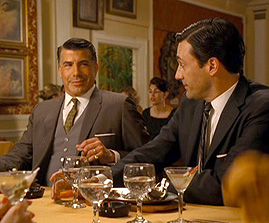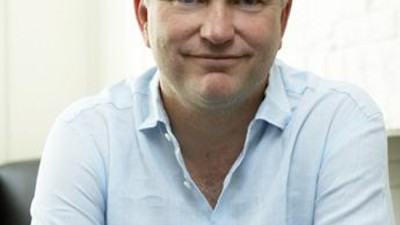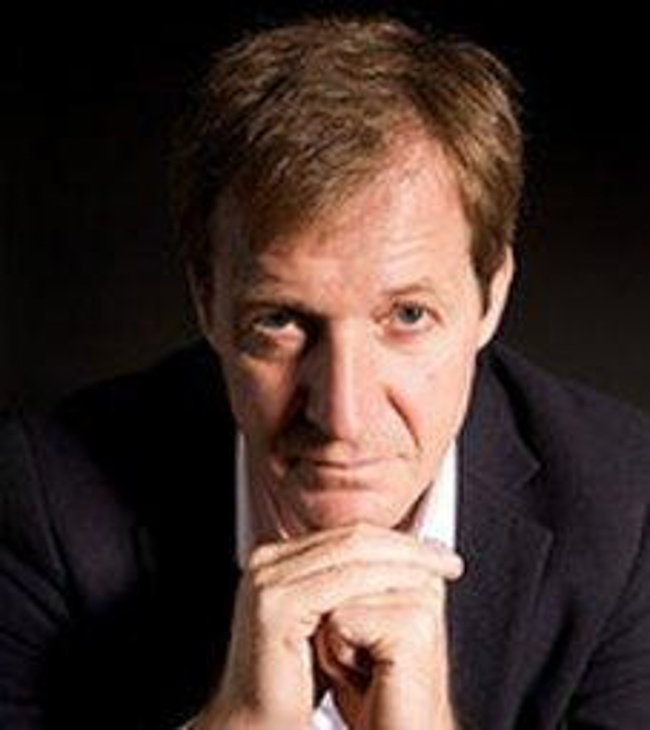Once described as “the dark soul of Tony Blair” and “the real Prime minister” –as his influence on the government was deemed to be so powerful- Alastair Campbell (52) appears nowadays in much more relaxed form than during his Downing Street years. The former Spin Doctor in chief, who has turned to writing and fundraising for research into leukaemia, talks candidly about his career change, his old demons and his fear of dentists.
How did you decide to become a novelist?
I was cycling one day when I saw an enormous crowd attending a funeral, which gave me the concept for the novel. Also at the time, I was seeing a psychiatrist and was thinking a lot about depression and addiction, which also contributed to the creation of my characters. When I arrived home, I had already created in my mind two of the characters and the ending. I went straight to my computer and started writing. I wrote the novel quite quickly, in about six months, and didn’t tell anything to anyone, including my family, until it was finished.
You have been a journalist, a spin doctor and you are now a novelist: which job is the most difficult and which is the most fulfilling?
Being a journalist was the easiest of the three and being a spin doctor was both the most fulfilling and the most difficult job. It was tough and challenging but gratifying because I was part of a team which not only changed the country, but I believe changed it for the better. It is also very gratifying, though not as difficult, to write a novel, because you get to start something from scratch, created entirely from your imagination. Also, I was recently contacted by someone on Facebook, who told me that reading my book completely changed his view on mental illness, which was hugely rewarding for me.
The novel has been described as semi-autobiographical. How much of yourself have you put in the characters and is there one in particular you most identify with?
Several aspects of the characters are inspired from my own experiences. I suffer from depression, like most of them, and did myself some of the therapies I describe in the book. At times, I identified with the psychiatrist: when I was in politics, I was at the centre of the action, so -like him- I often had to guess what people were thinking. I also had a nervous breakdown, so I know how it feels to crack up, and this part of the novel is inspired from my own experience. The MP is an alcoholic, like I was. The way David feels and describes depression in the book is very much like mine, although unlike him, I was lucky enough to be able to do things with my life and not to be paralysed by my illness.
The novel shows a very sensitive side of your character, in sharp contrast to your public persona in politics: how did you manage to handle being vilified so much?
I believe you can be both very tough and very vulnerable at the same time. During my ten years with Tony Blair, I sometimes felt depressed, but always managed to isolate my personal state of mind from my job. But when I quit Number 10, I must say that it was very tough, as I suddenly had a lot of time to think and felt very depressed again. I was very active and kept myself very busy, but I felt I had no purpose and nothing I did seemed very gratifying. The book really helped me in that regard, in the sense that I realised it wasn’t a problem anymore not to know exactly what I was going to do with my life, and that for the first time, I had the freedom to do whatever I wanted. The things I miss are also the things I don’t miss: I miss having a sole mission, but I don’t miss the constant pressure and the fact that I always had to leave choices to others. As for being vilified, it didn’t really affect me or my kids, but it was tough for my mother. What I hated though was when I did a briefing, but that the journalists chose instead to talk about me rather than the policy.
What has been your most memorable moment at Downing Street?
The best moment, without a doubt, was the day of the Good Friday Agreement in Northern Ireland. But when I look back at those ten years, I don’t really think about good or bad times, more about the fact that we have achieved something that was very difficult.
For someone who has been used to being constantly surrounded by people, doesn’t it feel lonely to be a novelist?
I sometimes feel a bit lonely, but I am fine most of the time. I don’t mind my own company and can easily stay at my computer writing for eight hours straight. That said, I do like being part of a team, so enjoy meeting with my publisher and my agent.
What is your next move?
I am writing another novel, which is about the friendship between a famous actress and her best friend. I am working on the third draft so am almost finished now. I would really like to turn the novels into films, and maybe write the scripts myself. But I also want to do different things in my life, and don’t really have a career plan anymore.
Can you tell us something we don’t know about yourself?
I am terrified of dentists and injections. Not long ago, I was at the hospital and when I saw the nurse approaching with the needle, I fainted.
All in the Mind (Hutchinson) is published in french under the title Tout est dans la tête (Albin Michel)
Alastair Campbell in Dates:
- 25 May 1957: Born in Yorkshire, one of four children of Scottish veterinary surgeon Donald Campbell and his wife, Elizabeth.
- 1979: Graduates from Cambridge University with a degree in modern languages. Spends a year in France as a university assistant and writes pornographic stories for magazine Forum.
- 1982-1994: Moves to London to work as a journalist and then as political editor for The Daily Mirror and Today.
- 1986: Hospitalized after a nervous breakdown triggered by alcoholism and stress.
- 1987: Birth of the first of his three children (now aged 21, 19 and 14) from partner Fiona Millar.
- 1994: Becomes Tony Blair’s press secretary when the latter is elected leader of the Labour Party.
- 1997: Nominated Prime Minister’s Chief Press Secretary and Official Spokesman by Tony Blair after the Labour Party’s victory.
- 2001: Nominated Director of Communication and Strategy by Tony Blair.
- 2003: Resigns during the Hutton inquiry (which eventually clears him in relation to the suicide of Professor David Kelly).
- 2003-2007: Volunteers as chairman of fundraising for Leukemia Research, writes articles on sports for The Times.
- 2007: Publishes The Blair Years (Random House), part of his diaries at Downing Street from 1994 to 2003, which becomes an instant bestseller.
- 2008: Publishes his first novel All in the Mind (Hutchinson) and broadcasts Cracking Up, a documentary on BBC2 on his nervous breakdown in 1986.
- April 2009: All in the Mind Translated in French (Tout est dans la Tête).












Comments